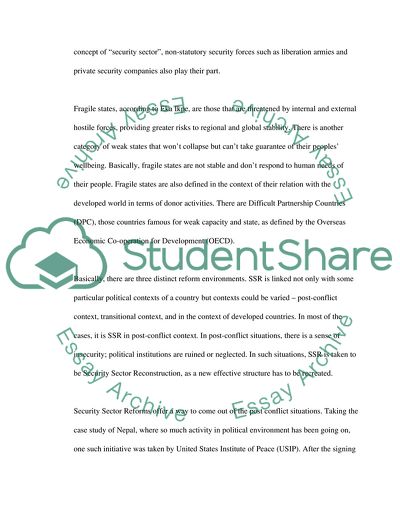Cite this document
(The Concept of Security Sector Reform Term Paper, n.d.)
The Concept of Security Sector Reform Term Paper. https://studentshare.org/politics/1706854-what-do-you-understand-by-the-concept-of-security-sector-reform-in-what-ways-could-it-offer-a-way-forward-in-weak-states-explain-with-examples
The Concept of Security Sector Reform Term Paper. https://studentshare.org/politics/1706854-what-do-you-understand-by-the-concept-of-security-sector-reform-in-what-ways-could-it-offer-a-way-forward-in-weak-states-explain-with-examples
(The Concept of Security Sector Reform Term Paper)
The Concept of Security Sector Reform Term Paper. https://studentshare.org/politics/1706854-what-do-you-understand-by-the-concept-of-security-sector-reform-in-what-ways-could-it-offer-a-way-forward-in-weak-states-explain-with-examples.
The Concept of Security Sector Reform Term Paper. https://studentshare.org/politics/1706854-what-do-you-understand-by-the-concept-of-security-sector-reform-in-what-ways-could-it-offer-a-way-forward-in-weak-states-explain-with-examples.
“The Concept of Security Sector Reform Term Paper”. https://studentshare.org/politics/1706854-what-do-you-understand-by-the-concept-of-security-sector-reform-in-what-ways-could-it-offer-a-way-forward-in-weak-states-explain-with-examples.


